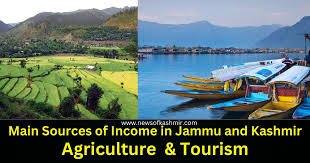Which Indian State is Known as the Jewel of India?
India is home to numerous states, each unique in its culture, history, and geographical features. One such state that stands out in the hearts of many is Jammu and Kashmir. Often referred to as the “Jewel of India,” Jammu and Kashmir is a region known for its stunning natural beauty, rich cultural heritage, and historical significance. This article will explore why Jammu and Kashmir is called the “Jewel of India,” shedding light on its breathtaking landscapes, vibrant traditions, and its importance in India’s history and culture.
Why Jammu and Kashmir is Called the Jewel of India
Jammu and Kashmir, located in the northernmost part of India, is often regarded as the “Jewel of India” due to its pristine beauty, which includes snow-capped mountains, lush valleys, and crystal-clear rivers. The state’s picturesque landscapes, especially places like Srinagar, Gulmarg, and Pahalgam, have earned it this title. The unique combination of its natural beauty and cultural diversity makes it one of the most admired regions in the country.
Geographical and Cultural Significance
Jammu and Kashmir’s geographical location, nestled in the Himalayas, makes it an important state for both environmental and strategic reasons. The region is famous for its high-altitude lakes like Dal Lake and its vibrant houseboats. Culturally, the state is a blend of diverse traditions influenced by various civilizations. From traditional Kashmiri handicrafts to the iconic Wazwan cuisine, Jammu and Kashmir offers a rich cultural experience. The region’s spiritual significance is also prominent, with famous pilgrimage sites such as Vaishno Devi and Amarnath.
Economic Contributions and Tourism
The state’s economy is primarily based on agriculture, handicrafts, and tourism. Jammu and Kashmir is known for producing saffron, apples, and dry fruits, contributing significantly to India’s agricultural sector. Additionally, tourism plays a major role in the state’s economy, with thousands of visitors flocking to the state each year for its scenic landscapes, adventure tourism, and spiritual sites. The iconic houseboats on Dal Lake, along with trekking opportunities in the Himalayan ranges, attract travelers from across the globe.

Why This News is Important
Cultural and Strategic Importance
The title of “Jewel of India” given to Jammu and Kashmir highlights the cultural and historical significance the state holds for the country. Understanding this helps students appreciate the diverse nature of India’s regions, which is crucial for exams that test knowledge of Indian geography and culture. Jammu and Kashmir’s cultural diversity also makes it an essential subject in the Indian Civil Services Examination.
Insights for Civil Services Examination
For civil services aspirants, the region’s political history, geographical importance, and cultural richness are vital topics. Questions regarding Jammu and Kashmir’s cultural heritage, its economic contributions, and its role in India’s strategic interests are often asked in the General Studies paper. Additionally, understanding the state’s geographical diversity is critical for the geography section of competitive exams.
Tourism’s Role in India’s Economy
The tourism sector in Jammu and Kashmir is integral to India’s economy. This knowledge is beneficial for exams that test understanding of India’s economic landscape and the significance of regional economies. Jammu and Kashmir’s position as a top tourist destination also serves as a crucial case study for economic and developmental studies in various government exams.
Historical Context
Jammu and Kashmir’s Historical Significance
Jammu and Kashmir has been a region of strategic and cultural importance for centuries. Historically, it was known for its Buddhist and Hindu temples, as well as its Persian-influenced culture. During the Mughal era, the region was famed for its gardens, art, and architecture. It became a princely state under British rule, and after India’s independence in 1947, the state’s political status became a subject of much dispute, leading to ongoing issues with sovereignty and governance.
Post-Independence Challenges
After India gained independence, Jammu and Kashmir’s political status became a point of contention. The state initially acceded to India but has since witnessed numerous conflicts, particularly regarding its borders and governance. The region remains vital for India’s security strategy and has seen numerous military, political, and social developments over the years, contributing to its central role in the country’s history.
Key Takeaways from “Which Indian State is Known as the Jewel of India?”
| S.No | Key Takeaway |
|---|---|
| 1 | Jammu and Kashmir is known as the “Jewel of India” due to its scenic beauty and cultural richness. |
| 2 | The region’s geographical location, nestled in the Himalayas, is strategically important for India. |
| 3 | Jammu and Kashmir is a major tourist destination, known for its landscapes, trekking, and spiritual sites. |
| 4 | The state’s economy is driven by agriculture (saffron, apples) and tourism, with significant contributions to India. |
| 5 | The region’s historical importance, from the Mughal era to its post-independence significance, makes it vital in Indian history. |
Important FAQs for Students from this News
Why is Jammu and Kashmir called the Jewel of India?
Jammu and Kashmir is called the “Jewel of India” due to its breathtaking natural beauty, including snow-capped mountains, lush valleys, and serene lakes like Dal Lake. Its rich cultural heritage and strategic importance also contribute to this title.
What is the main economic activity in Jammu and Kashmir?
Jammu and Kashmir’s economy is primarily based on agriculture, including the production of saffron, apples, and dry fruits. Tourism also plays a major role, with visitors attracted to its scenic beauty and cultural heritage.
What are some famous tourist attractions in Jammu and Kashmir?
Some of the most famous tourist destinations in Jammu and Kashmir include Srinagar, Gulmarg, Pahalgam, Dal Lake, and Vaishno Devi. The region is also known for adventure tourism and pilgrimage sites like Amarnath.
What role does Jammu and Kashmir play in India’s security?
Jammu and Kashmir is strategically important due to its location in the northernmost part of India. The region shares borders with Pakistan and China, making it crucial for India’s national security.
What historical events have shaped Jammu and Kashmir’s current status?
Jammu and Kashmir’s political status has been a subject of controversy since India’s independence. The state acceded to India in 1947, but its sovereignty has been disputed, leading to conflicts and ongoing political issues in the region.
Some Important Current Affairs Links

















